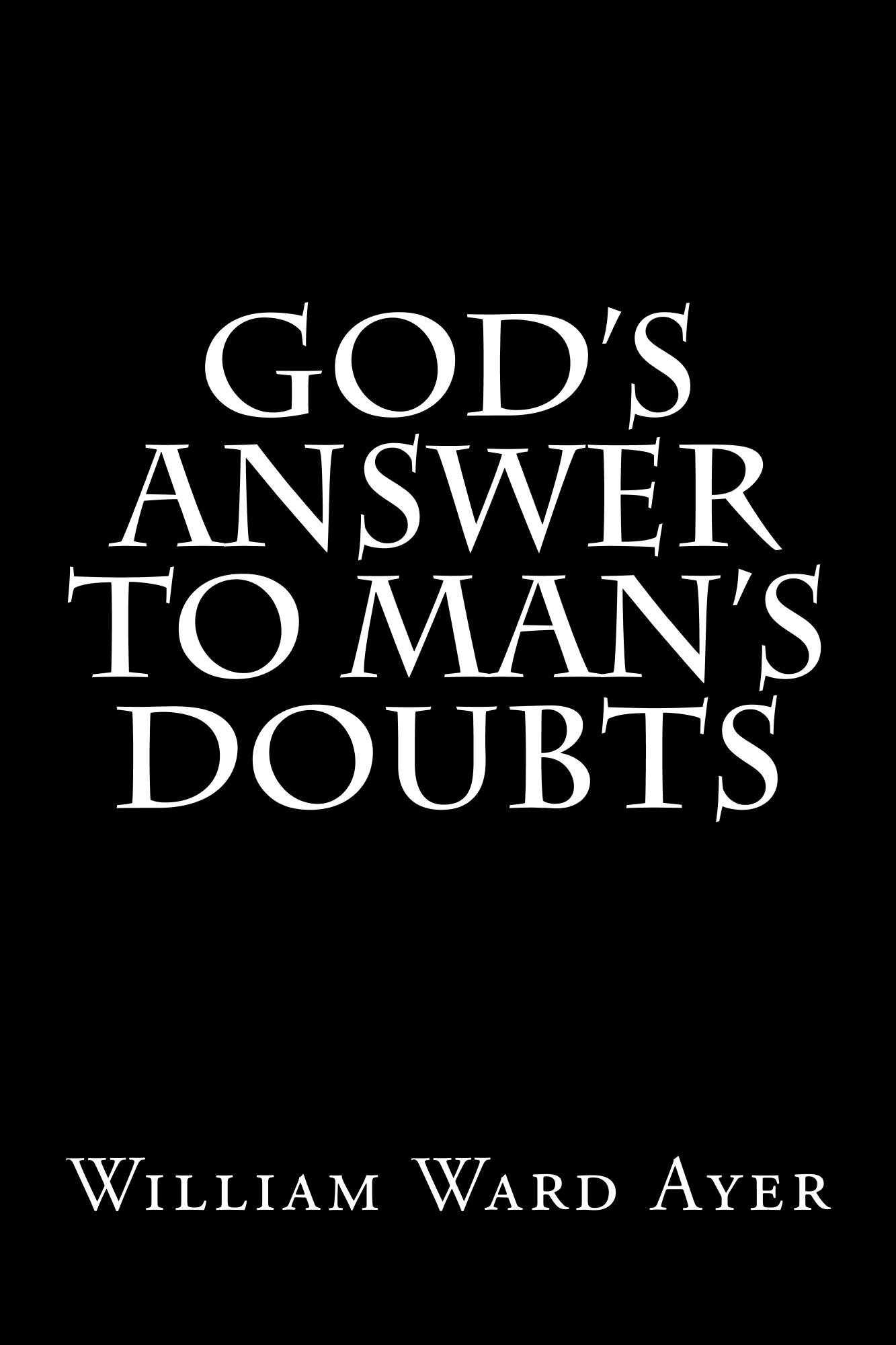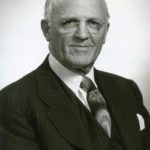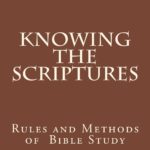Description
GOD’S ANSWER TO MAN’S DOUBTS
by
WILLIAM WARD AYER
2017
- PREFACE 5
I. MAN’S WISDOM AND GOD’S 7
II. IS SCIENCE SUFFICIENT OR DO WE NEED CHRIST? 16
III. SHALL WE DISCARD THE OLD FAITH FOR THE NEW KNOWLEDGE! 26
IV. IS FALSE SCIENCE RESPONSIBLE FOR OUR WORLD TRAGEDY? 36
V. CAN INTELLIGENT PEOPLE BELIEVE THE GOSPEL STORY? 45
VI. DID BIBLE MIRACLES HAPPEN? 54
VII. WHY I BELIEVE THE WHALE SWALLOWED JONAH 64
VIII. IS THE BIBLE SCIENTIFIC? 75
IX. THE FAILURE OF MODERNISM’S ATTACK UPON THE GOSPEL 86
X. CAN WE BELIEVE IN A BENEVOLENT GOD IN THE LIGHT OF THE PRESENT WORLD TRAGEDY? 97
God’s Answer to Man’s Doubts
by
WILLIAM WARD AYER
Pastor, Calvary Baptist Church New York City
Ours is a scientific age – a skeptical age – an age of questions. Men are bewildered, perplexed, and they can find no abiding peace. The world about them but reflects the chaos in their own hearts. We are living in an era of doubt.
The author of this stimulating volume has watched men battling doubts, and in this book he shouts triumphantly, “God has the answer!”
Author Ayer goes to the only source of stability in our scientific age – the Bible – and gives us Scripture’s reassuringly concrete answers to all man’s questions, doubts and perplexities.
Speaking earnestly to both the saved and the unsaved, the author tells us not to listen to the strange voices in the world, the false words of man’s superficial wisdom, but to hear eagerly the true and faithful words that satisfy forever – the answer of God.
DEDICATION
This volume is affectionately dedicated to the memory of my mother, who gave me to the Lord and prayed me into the Christian ministry, and to my sister, Abbie, whose earnest prayers, gifts and encouragements launched me safely into the Christian life and into my studies for Christian service.
PREFACE
This volume contains material used by the pastor of Calvary Baptist Church in his sermonic presentation of “the old Gospel preached in the heart of modern Babylon.’’. These studies were preached to large church congregations and to additional thousands through a radio ministry covering not only New York’s metropolitan area but a great portion of the east coast of the United States and the maritime provinces of Canada. Their style and form have been changed somewhat in preparing them for this volume, to make them less wordy and more readable.
The author feels that there is a definite place for polemics in pulpit ministries when the disputation is kept upon a high and constructive plane. The first responsibility of the pulpit is to present the Gospel simply, plainly and lovingly, trusting its power and winsomeness to win men and women to a saving knowledge of Jesus Christ. This preaching method may be all-sufficient in some localities, but not in pagan, godless, self-satisfied and self-superior New York where all the isms are rampant and where the faith which was once delivered unto the saints is attacked by many, including apostate religious leaders. Multitudes of others in this city have forsaken the faith of their fathers since coming into this great metropolis, and when questioned about their indifference their reply is that they find no basis in this scientific age for the faith in which they were nurtured.
This condition is a challenge to the preacher of the old Gospel. In such an atmosphere as this he must, at least periodically, become the apologist, facing squarely the discoveries of modern science in their relationship to all phases of the faith; warning against the claims of pseudo-science and the false interpretations of scientific discovery made by unbelieving scientists; keeping God’s people informed concerning the answers to the spiritual problems so often raised in our materialistic age.
To do this the preacher need not be a specialist in any scientific field. He must, however, be a specialist in Biblical knowledge and keep himself informed by wide reading and study concerning the discoveries and assertions of scientific men. If there are problems with which he is not trained to cope, he can find plenty of sources which deal adequately with the situation. Whether or not the preacher answers every problem, by facing the issues squarely he will give strength and courage to those who might otherwise feel that Bible Christianity has been completely refuted by the discoveries of modern science.
We think the survey of religious problems is quite complete. The basic conflict is presented in the first chapter, in which man’s wisdom vs. God’s is considered. The discussion of the limitations of pure science in dealing with the sins of a lost world and its need of Christ carries the thought a bit further.
Bible miracles, which are a stumbling block to many, are dealt with in a special chapter which we feel will bring light to some who are perplexed.
The author, therefore, presents this volume to the reading public with the hope that it may be used of God to answer the doubts of some who, like Thomas of old, must have much tangible proof before their faith is established.
WILLIAM WARD AYER
New York City
I. MAN’S WISDOM AND GOD’S
If any of you lack wisdom, let him ask of God, that giveth to all men liberally, and upbraideth not; and it shall be given him.
But let him ask in faith, nothing wavering; for he that wavereth is like a wave of the sea driven with the wind and tossed.
For let not that man think that he shall receive any thing of the Lord.
A double minded man is unstable in all his ways.
– James 1:5-8
Who is a wise man, and endued with knowledge among you? Let him shew out of a good conversation his works, with meekness of wisdom.
But if ye have bitter envying and strife in your hearts, glory not, and lie not against the truth.
This wisdom descendeth not from above, but is earthly, sensual, devilish.
For where envying and strife is, there is confusion and every evil work.
But the wisdom that is from above is first pure, then peaceable, gentle and easy to be entreated, full of mercy and good fruits, without partiality, and without hypocrisy.
– James 3:13-18
At the outset let us note that we are dealing with wisdom and not with mere knowledge. Many do not distinguish between the two. There can be no wisdom without knowledge, but there can be, and ofttimes is, knowledge without wisdom. “Knowledge comes, but wisdom lingers.”
The dictionary defines knowledge as “information, learning, scholarship,” but wisdom is defined as “the power of true and just discernment.” Knowledge is the working tool of wisdom; and wisdom is the work done with the tool. Knowledge without wisdom makes a man an educated misfit – a fool; and there are many such, “educated beyond their intelligence.” Wisdom may be possessed by those whose schooling is limited but who make a wise use of the knowledge which they have.
In the last analysis, no man is wise in his own right. True wisdom is God-given. James says, “If any of you lack wisdom let him ask of God that giveth to all men liberally and upbraideth not and it shall be given unto him.” Now, God will give you wisdom, but He does not give you knowledge without your effort; you must dig in and work for that. God will not teach you the multiplication table, but He will give you wisdom in its use once you have learned it. The same principle might be applied to the learning of American history or even of the Bible itself, but as to the obtaining of wisdom Job asks, in the twenty-eighth chapter, “Where shall wisdom be found? and where is the place of understanding? Who can know?” After some soliloquizing, he arrives at this conclusion: ‘ ‘ God understandeth the way thereof, and he knoweth the place thereof. Behold, the fear of the Lord, that is wisdom; and to depart from evil is understanding!”
James adds to this great truth by telling us of the two kinds of wisdom in the world. He tells us in Chapter 3:13-17: “This wisdom descendeth not from above, but is earthly, sensual, devilish. For where envying and strife is, there is confusion and every evil work. But the wisdom that is from above is first pure, then peaceable, gentle, and easy to be entreated, full of mercy and good fruits, without partiality, and without hypocrisy.” Here is both a true and a false wisdom. The true is from above – the false is from below.
Note also the characteristics of the two. The wisdom which is from beneath is threefold in its character, while the wisdom which is from above is sevenfold. There are a multitude of truths which the child of God should study carefully here. Let us note a few.
- THE WISDOM WHICH IS FROM BENEATH IS THE PHILOSOPHY WHICH HAS GROWN OUT OP MAN’S DISCOVERED KNOWLEDGE OF HIMSELF AND THE UNIVERSE
From these discoveries he has built up a great culture and a great philosophy which he believes will eventually be the panacea for all his ills. We illustrate briefly. Through his discoveries in geology and astronomy he maintains that he knows the structure and workings of the universe, and oft-times declares that he knows even its origin, purpose and destiny. Through physiology, psychology and sociology, men have ferreted out the physical, mental and moral structure of humankind and have analyzed and classified its needs, failings and possibilities. Biologists, through the science of biology, assert that they know the origin of all life on this planet, including man.
Whether or not we have noted it, we have come to a day when men, drunk with their own power and wisdom, have built up a philosophy which all but excludes God from their thinking and in almost every instance completely excludes the revelation of God as given in the Bible. This has finally resolved itself into the wisdom which is from beneath, which is, as the apostle says, “earthly, sensual, devilish.”
This condition did not exist in education a generation or more ago. Some of us who are old enough to remember when the Bible was enthroned in our educational life will remember the old “McGuffy Readers,” which had more religion in them than many of our Sunday school periodicals today, and, while they did not teach definite evangelical faith, certainly did teach strong Biblical morals.
Some will remember the teachers and professors that they had in school and college a generation ago. Mrs. Ayer tells me of the principal of the high school that she attended in a little town in Illinois – a man who preached more Gospel in the schools than you will find in some churches today, and who had a godly and Christian influence upon all the young people who came under his supervision. It is well to remember that every great college from Harvard on down or up, as the case may be, was founded by Christian men and women for the propagation of the religion of the Lord Jesus Christ.
But today, education is devoid of religion in most instances, and in some schools a definite irreligion is being taught. Bible reading has been eliminated from the lower schools and the voice of prayer is rarely heard. Even moral inculcations, such as the old-fashioned yet effective “Temperance Lessons” have disappeared. Today many of our high schools are inciting the sex passions of boys and girls through the modern dance and through some of the books that they are asked to review. The ideal upheld in our schools by at least a few is too often that of the chorus girl and motion picture actor or actress.
ATHEISTIC AMERICAN SCIENTISTS
Higher education is becoming viciously antagonistic to genuine Christianity. No one will deny that many of our professors in institutions of higher learning are either out-and-out atheists or agnostics. Professor Leuba, formerly of Byrn Mawr College, boasts that he questionnaired the scientists of America and discovered that more than half of them did not believe in a personal God nor in personal immortality. When you discover out-and-out Christians among scientists like Dr. Dawson of Montreal and Dr. Howard Kelly of Johns Hopkins University, they stand in bold relief against the infidelity of many others in their profession.
Of course some will say that this proves that orthodox Christianity cannot stand in the presence of higher learning. The Biblical pulpiteer is accused of preaching against higher education, but he is not an enemy of education; he is its friend!
Is a druggist an enemy of medicine when he marks some of his bottles “Poison”? Was Dr. Harvey Wiley an enemy of food when he instigated the Pure Food Laws to save our people from being physically contaminated by unprincipled food producers? As to the assertion that a man cannot be a Christian and be highly educated, let it be noted that it is not a matter of knowledge, it is a matter of wisdom. Depending merely upon the wisdom from beneath is a deadly procedure. Man cannot “by searching find out God,” for belief is not a matter of knowledge but of wisdom.
For example, Prof. Einstein, is an admitted agnostic, and though he is a highly publicized scientist he does not begin to have the wisdom of Sir Isaac Newton; Newton was a devout believer who spent time studying the prophecies of the book of Daniel. He believed that God had authoritatively spoken in His Word and that Jesus Christ was the Son of God and the Saviour. Shall one say that Einstein knows more than Newton? No intelligent person would believe for a moment that he knows one-third as much. His lack of faith is lack of wisdom, not lack of knowledge. Newton had both knowledge and wisdom.
Thomas Edison was an admitted agnostic and many people have felt that they could not believe the Bible and in Jesus Christ simply because Edison with all his knowledge did not believe. Again, it is not a matter of knowledge – it is a matter of wisdom. Edison lived and probably died an agnostic, but Michael Faraday, who laid the foundations in the field of electricity for the great work of Edison, and to whom Edison often admitted that he was greatly indebted, was a devout Christian as well as a great scientist. We are told that on occasion he would read a learned paper to a scientific society and then slip quietly away to attend a prayer meeting and find fellowship with God and those who believed in Him. Certainly his superiority was not so much a matter of knowledge as of wisdom.
Modern education propagates a science and philosophy which, if it does not deny God, completely ignores Him. Christ is a mere character of history and many of our educators” damn Him with faint praise’’ when they do not ridicule Him as a fanatic. Professor Harry Elmer Barnes, formerly of Smith College, in his book The Twilight of Christianity, calls Jesus an “impractical dreamer.” Though many of our educational leaders are not quite so outspoken, their estimate of the Son of God too often coincides with this imperfectly informed schoolman.
SO THEY CAN’T BELIEVE!
Modern education declares the Bible is a human book full of superstition, myths and unbelievable things. The declaration of the “wisdom from beneath” is that we cannot believe the Bible with its miracles and prophecies because we are too intelligent in our day. I have often wondered why men cannot see the foolishness of this attitude. They maintain that they cannot believe Moses’ beautiful and concise story of creation, yet they can believe the speculations of Darwin. They cannot believe God when He says that He made man in His own image, but they can believe Darwin when he speculates that man descended from “Old World monkeys.” They cannot believe a “thus saith the Lord,” but they believe “a hypothesis,” “a guess.” Attention has been called again and again to the fact that Darwin in his Origin of Species says “We may well suppose” something over eight hundred times.
They cannot believe the Book when it says “He that formed the eye, shall he not see?” but they can believe the evolutionist when he teaches that the eye was formed through the process of light waves playing upon the skin of some prehistoric animal.
They say it is impossible for them to believe God when He says “He that planteth the ear, shall he not hear!” but they have no difficulty in believing that ears are the product of an evolutionary process by which they “came out” in answer to sound waves beating upon the skin of some muddy creature in the dim and distant past.
Now, of course, when you comer many of these men they will say, very blandly, “We don’t believe Darwin any more”; but the fact of the matter is, they do! He is the patron saint of the liberals in religion. You’ll even find his statue over the doorway of one of the popular churches of New York City, and he is placed there in company with Peter, Paul, John and others – the unbelieving Darwin among the saints! And this in spite of the fact that no man has lived in a thousand years who has struck a harder blow at true Christianity than this same Darwin, however sincere he may have been.
He has destroyed the faith of millions of the last two generations. They believed his speculations in spite of the fact that shortly before he died he wrote a friend, according to reliable reports, “I am an old man in feeble health. I must be content to remain an agnostic. The beginning of all things is a mystery insoluble by us. I believe there has never been a revelation.”
DOWNGRADE PHILOSOPHY!
The fruit of the wisdom from beneath is shown by the much publicized questionnaire sent out by the aforementioned Professor Leuba to the students of nine representative colleges and universities. He questioned these students as to their faith and made this startling discovery: First, that only fifteen per cent of the university freshmen had discarded Christianity, but thirty per cent of the juniors had discarded it, and from forty to forty-five per cent of the graduates rejected the cardinal principles of the faith. This is certainly a downward and deadly curve and many of the universities stand condemned of rank paganism by these revelations.
This is the wisdom which is from beneath and what benefits has it brought to us? In the main it has brought us little except sorrow. Our age is marked by sensuality and crime and social chaos. We have been told that the cost of crime in America is higher than the normal national budget, a sum of many billions of dollars. With conditions as they are in our civilization today, it is not amiss to declare that men need a good deal of divine wisdom if civilization is to be saved from utter destruction.
And yet this earthly philosophy – this human knowledge – is saying to a sin-cursed, warring and dying world, “ Never mind your Bible, never mind your Christ; we’ll work out all the problems for you.” Is it any wonder James says this wisdom is devilish? Has the devil any better ally in this unbelieving age than the paganism of much of modern education?
- THE WISDOM WHICH IS FROM ABOVE IS THAT WHICH HAS BEEN GIVEN BY REVELATION
Note its characteristics. James says it is first pure, then peaceable. It has a purifying influence, and America needs that influence today!
There are two truths that Christians must fix firmly in their minds. One is negative, the other positive. The first is that mere human wisdom will never completely solve human problems, nor can it give us the ultimate truth concerning anything under the sun. Those who are dealing with human knowledge alone are “ever learning and never coming to the knowledge of the truth.” “Even as they did not like to retain God in their knowledge, God gave them over to a reprobate mind.” While they are condemning the Bible, the Bible is outspoken and plain in condemning them. It tells them exactly what is wrong with them. Look again at that severe indictment found in the first chapter of Romans and see how true it is to conditions in our day. Both cause and effect are presented in unmistakable clearness.
Human wisdom and modern learning have rejected the one sure foundation, the impregnable rock of Holy Scripture, and have built their house upon the sands of human pride; and that house inevitably will fall. Human wisdom can never arrive at spiritual truth. It will always deal with half-truths only, for the major premise of human wisdom is wrong; therefore, its conclusions can never be right. The major premise of human wisdom is that we are in an evolving world; whereas the truth is that we are in a lost and degraded one. Human wisdom has denied that God has spoken and has been satisfied with the darkness of unbelief. Those who put their trust in human wisdom will live in darkness and die in darkness.
The second is a positive truth and is this – God has spoken! If we believe, we need not be in darkness, and no matter how radically different from accepted knowledge the Bible may seem to be it is nevertheless God’s wisdom.
ONLY THE BOOK TELLS
Only the Book can unify our universe – only God’s wisdom can make sense and harmony out of life. Where else can you learn what is wrong with the world today? Where else can you discover the true meaning of your sinful condition or have your hunger for God satisfied? Where, except in the Book, can you learn why you hope for heaven and have an instinctive fear of hell? Where else can you find light in the midst of darkness?
Sir Walter Scott, dying, said, “Lockhart, bring me the Book.” And when asked what book, he declared, “The Bible… There is but one Book; bring me the Book!” He had written previously:
Within this awful volume lies
The mystery of mysteries.
Happiest they of human race
To whom their God has given grace
To read, to fear, to hope, to pray,
To lift the latch and force their way,
And better hath they ne’er been born
Who read to doubt or read to scorn.
John Greenleaf Whittier also knew the truth when he wrote:
We search the world of truth, we cull
The good, the true, the beautiful;
From graven stone and written scroll,
From all old flower fields of the soul.
And weary seekers of the best
We come back laden from the quest
To find that all the sages said
Is in the Book our mothers read.
Only the Book can tell us what our hearts urgently need to know. The Book tells us of God, who is not only our Creator but our loving Heavenly Father. It makes plain that we are not “orphans of the storm” but objects of His care. The Book reveals our moral responsibility. We are not blind folk hunting in a dark room for something that is not there! God has told us our obligations and has given His light to guide. The Book tells us of our destiny and how Jesus died for our sins that we might live eternally with and through Him. In short, it portrays God’s program for this old world – past, present and future.
Well might the child of God ponder the wisdom of John Clifford when he said:
Last eve I stood beside the blacksmith door
And heard the anvil ring the evening chime,
And looking in, I saw upon the floor
Rude hammers worn with beating years of time,
“How many anvils have you had,” said I
“To wear and batter all these hammers so?”
“Just one,” said he, with a twinkling of the eye,
“The anvil wears the hammers out, you know.”
“So,” said I, “The anvil of God’s Word
For centuries critics’ blows have beat upon,
And still the sound of falling blows is heard,
But the anvil is unharmed, the critics gone.”





Reviews
There are no reviews yet.